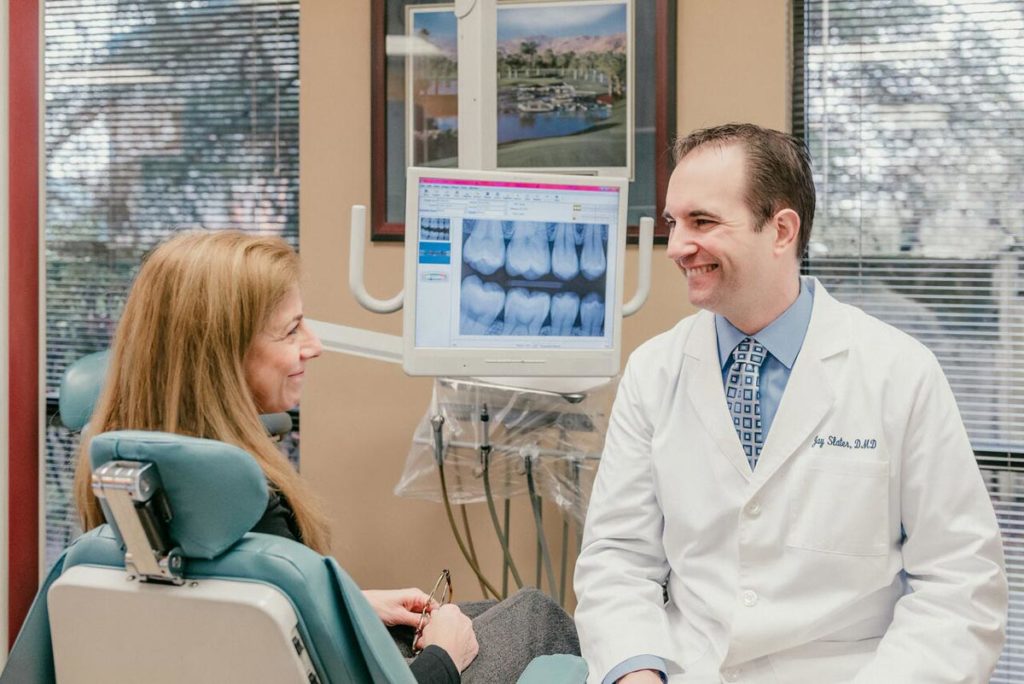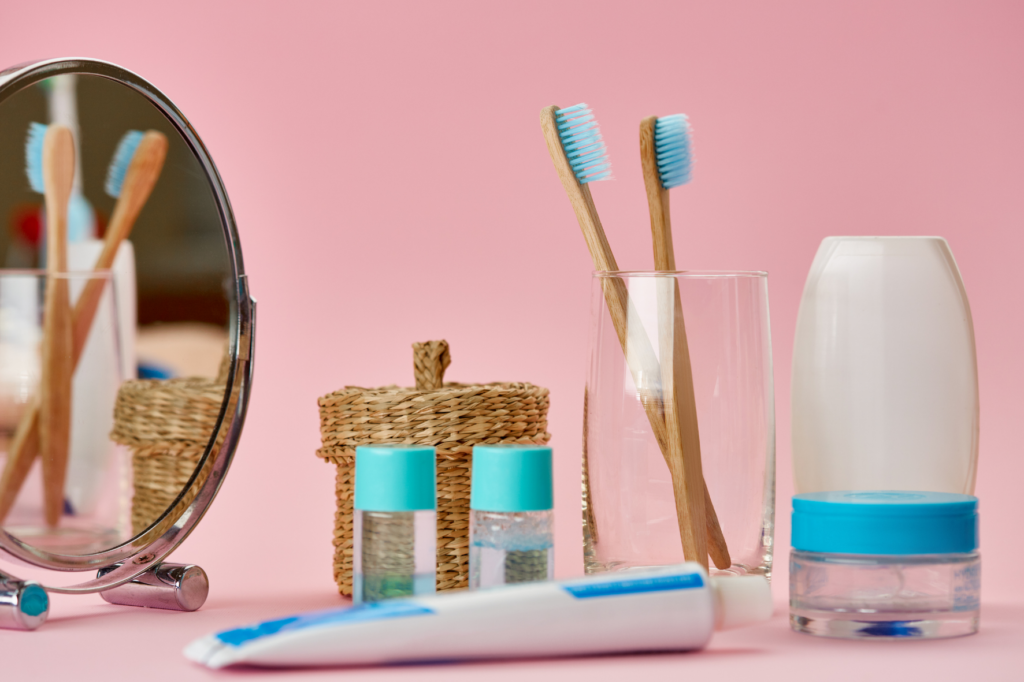At Slater Family Dental, we strive to ensure that our patients enjoy a lifetime of healthy teeth and gums. While both Aloha Oregon dentist Drs. Thompson provides patients with exceptional preventative dental care services. Patients must also do their part to ensure they maintain their oral health. That means practicing quality oral hygiene in order to fight the buildup of plaque and prevent the onset of tooth decay and gum disease. Fortunately for patients, keeping plaque off of teeth isn’t complicated, but it does require consistent care.
What is Tooth Plaque?
Plaque is a sticky hodgepodge of bacteria and the damaging substances they secrete. This bacteria produces adhesive chemicals referred to as mucopolysaccharides, which allows the bacteria to stick to your teeth in a film known as biofilm.
Early on, this layer of biofilm is easy to remove from teeth through brushing. But over time it can begin to harden into tartar or calculus on your teeth. Once plaque becomes tartar, you can no longer successfully brush the bacteria from your teeth. which is why you need to schedule regular cleanings with Dr. Slater so he can remove hardened tartar that builds up along the gum line.
In addition to the buildup of tartar, failing to brush regularly allows the plaque on your teeth to produce acids that slowly eat away at your teeth’s enamel. Persistent acid attacks can wear holes in tooth enamel, commonly called cavities. When holes appear in tooth enamel, bacteria can begin to pool in these areas. Which causes inflammation to occur inside the sensitive center of a tooth known as the dentin, which can lead to tooth sensitivity.
When it comes to protecting the health of your teeth, it remains imperative that you prevent the buildup of plaque. However, a number of bad habits can allow plaque to thrive in your mouth and contribute to tooth decay and gum disease.

Bad Habit 1: Not Brushing Daily
Brushing for two minutes at a time at least twice a day with a toothpaste that contains fluoride. It is the only way to ensure your teeth remain healthy and strong for years to come. Even though no one may notice if you only brush once a day. The plaque that builds up daily in your mouth will take advantage of the extra time you provided. It is caused by not brushing as often as needed.
Bad Habit 2: Not Flossing Daily
Some dentists actually consider flossing even more important to a patient’s oral health. Then brushing due to the habit’s ability to clean areas of your mouth that brushing cannot. Flossing does more than just remove lingering food particles that get stuck between teeth after eating. It also removes plaque deposits that develop in these areas, and along with hard-to-reach areas near the gum line. When left alone, plaque deposits along the gum line can lead to the development of gum disease.
Bad Habit 3: Not Using Mouthwash
Antibacterial mouthwashes help to reduce plaque and gingivitis and attack bad breath. To ensure the best possible oral health, continue to brush and floss daily, while also adding the use of antibacterial mouthwash that contains fluoride to your nightly oral hygiene regimen.
Bad Habit 4: Not Visiting the Dentist
As we discussed earlier, scheduling regular cleanings with Dr. Slater helps to ensure that any built up plaque that turned to tartar is removed from your teeth so you can continue to brush and floss properly. Failure to remove tartar makes cleaning your teeth long the gum line more difficult, which could increase your risk of developing gum disease and tooth decay.

Bad Habit 5: Eating too Many Sweets
The bacteria that thrives in your mouth loves simple carbohydrates like sugar. Diets high in candy or sugary soft drinks provide plaque with plenty of fuel to produce those acids that damage the health of tooth enamel. Plaque does this by digests the sugars you eat into acid. Not only does eating this type of food damage the health of your teeth, it also encourages the buildup of plaque. The more plaque in your mouth, the more acid produced when you eat sugar, and the more damage done to your teeth.
You can prevent this cycle by cutting down on the amount of sugar you consume daily, and eating more fruits and vegetables, which act as nature’s own toothbrush by helping to remove plaque from your teeth as you eat.




